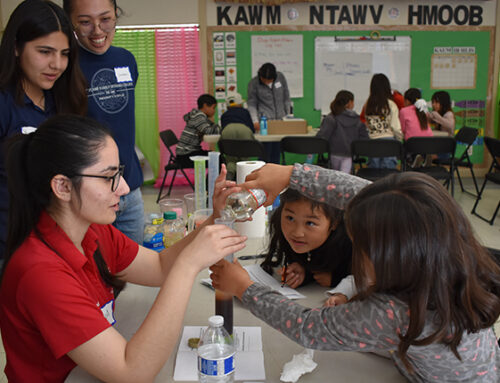“We don’t have equitable health care because most people in our community, farmworkers, don’t have access to health insurance, so it’s a big disadvantage in this health care and neighborhood and environment thing,” said a resident of Tulare County.
“The doctor told me the glucose results were 380. She told me that I have too much glucose, and that I was lucky I didn’t have a stroke. I told her I would drink four to five gallons of water a day and that I was peeing constantly. She told me that was my body screaming at me that I was on fire. Those are things that we don’t know about. If I had known that, I would have prevented diabetes,” said Jose Villa, a resident and farmworker from Poplar. “For me, it’s fundamental that there would be more providers that are local.”
These are just some of the firsthand accounts shared by Central California residents who have faced difficulties accessing health care due to health disparities within their community.
In a series of Healthcare Sustainability Briefs, the Central California Public Health Consortium at Fresno State examined how factors such as the local health workforce and hospital finances affect health care access and health outcomes for local residents.
Some key issues derived from each of the four briefs includes:
- Access to care: Access to affordable, timely and culturally relevant care is not a reality for many residents in Central California. The percentage of uninsured people under 65 years old is higher in Central California counties (8.79%) than in California overall (8.17%).
- Health outcomes: In a Regional Health Equity Analysis report measuring 98 indicators of health, Central California (relative to the rest of the state) had worse outcomes for 87 indicators – many of which can be traced back to challenges accessing affordable care and interacting with the hospital systems within the region.
- Health care workforce: Health care workforce shortages contribute to challenges accessing care, lower quality of care and inequitable health outcomes where the racial/ethnic profile of the health care workforce is not representative of the U.S. population. In fact, a recent UCLA report found that although 38.9% of California residents identify as Latino, only 6.4% of physicians in California were Latino.
- Hospital finance: The current health care and hospital financing system is not working for Central California health care facilities, and is contributing to a health care system that is not equipped to serve diverse communities well over the long-term. This issue is exacerbated in Central California, where a greater percentage of the population is enrolled in Medi-Cal (51.99%) than in California overall (40.43%).
To raise awareness and resources for the community, the Central California Public Health Consortium is working with regional partners and policymakers to share and disseminate the briefs with the goal of reaching residents across the region and to impact policy. The briefs are available in multiple languages including English, Spanish, Hmong and Punjabi.
“Sometimes access to care challenges get boiled down to a simple “lack of providers,” but the issues are far more complicated, and these briefs come together to highlight how there are many interconnected challenges, and we will need to develop solutions to address each issue area if we want to create system-level changes,” said Alyssa Kennett, director of the Central California Public Health Consortium. “The briefs also offer the opportunity to break down a complex issue into more manageable pieces. This issue is so significant, and so complex, that it can be overwhelming to know where to start addressing the challenges.”
The Central California Public Health Consortium, housed under the College of Health and Human Services’ Central California Center for Health and Human Services, engages in strategic planning and policy development through training and research to improve the quality of and responsiveness of public health programs in the Central California region.
To learn more about the consortium and its latest report, contact Alyssa Kennett at akennett@csufresno.edu.





